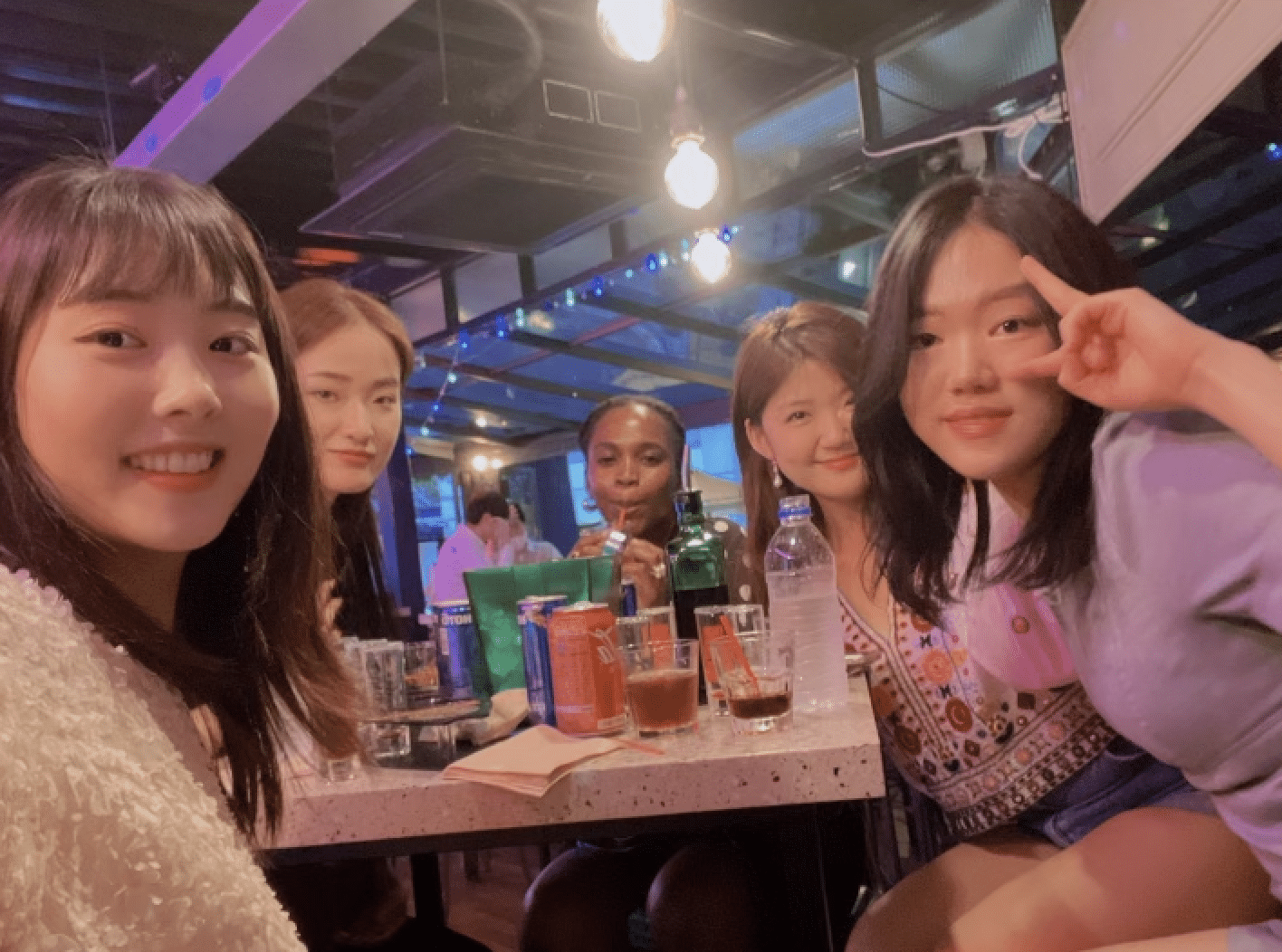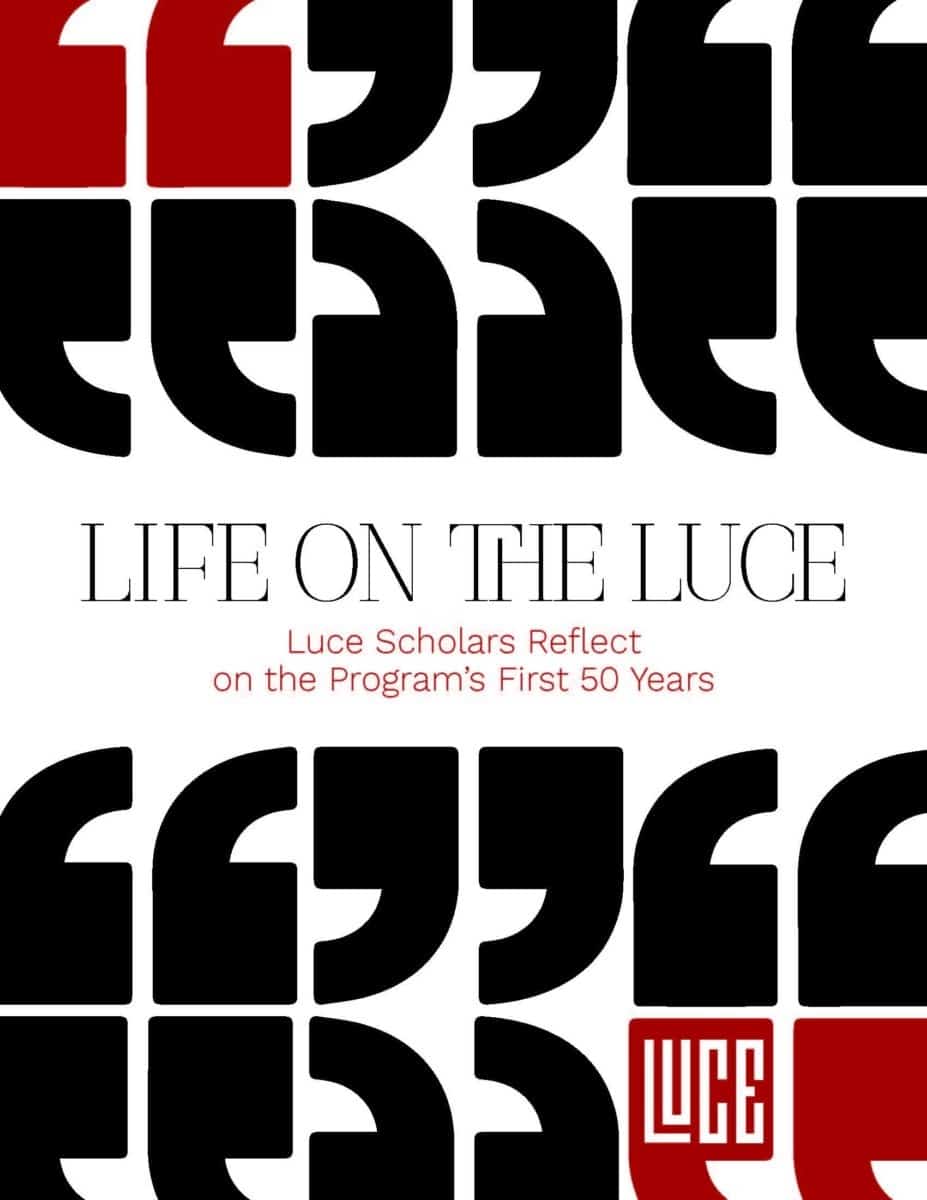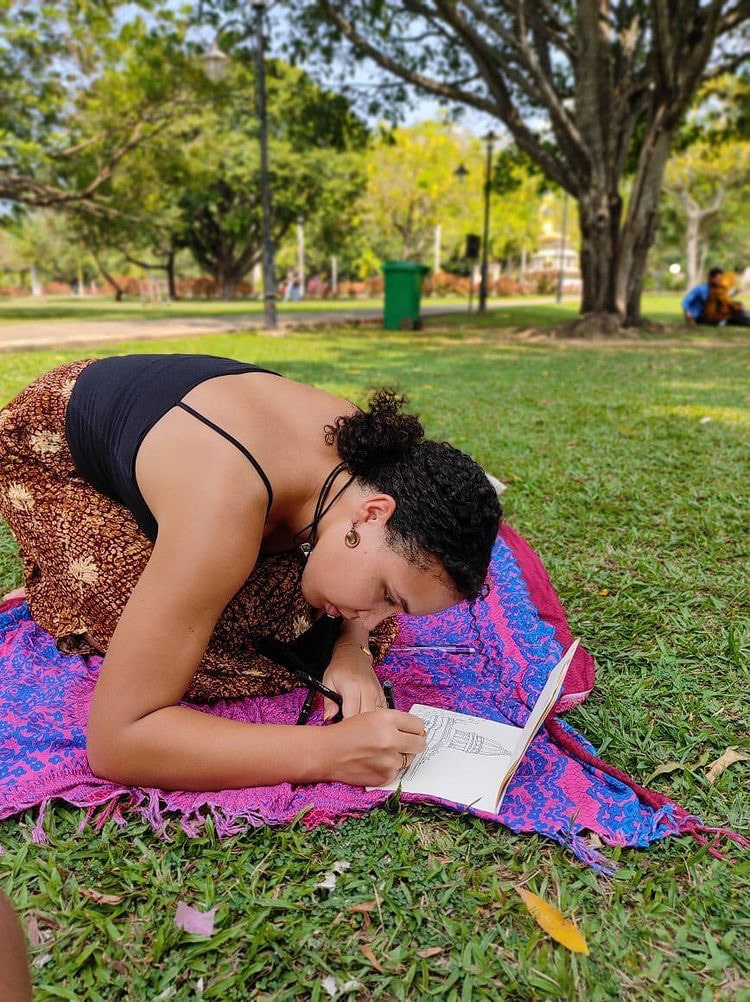At 3 am on a Saturday, my friends and I, two of whom I had only met earlier that day, sat on my rug looking down at the box of fried chicken and fries we had just ordered. After passing around chopsticks from my stockpile, I opened a bottle of red wine—the last South African pinotage from the wine shop in my neighborhood. I never bought wine glasses and so two people used the only two mugs I owned, and the rest drank out of recycled jars. The explosive debate of the hour: “what do you think about the government’s plans to abolish the gender ministry?”
My apartment has a pink couch, a large mirror, a growing happy tree named Cassius, and a rug that reminds me every day that where there is a will, there is a way.
There is an ajumma who lives across the street from me. Her porch is filled with 37 different kinds of plants and when spring sprung over Seoul, she opened her small greenhouse so her plants could breathe. I don’t think she knows this, but I watch her water her plants every morning while I do my lazy home workouts that don’t seem to be working (shocking). She is gentle with her plants, just as I am with Cassius. I imagine that she speaks to her plants while she waters them, just as I speak to Cassius every night, telling him what new political gossip I learned while working as a newspaper copyeditor.
Don’t get me wrong, I am no stalker. But I can’t help but admire this woman from afar because I want to be like her: I want to have a home where love comes to grow, love that is not uprooted and wilted by cold winters but is covered and protected always.
When I reflect on my life in Korea, I think about this small room that has seen me in all my glory and failures. Here, I fed my friends, laughed with them, and showed them the latest Afrobeat song. In this room, on the ninth floor of a building that disrupts the ecosystem of a historic Seoul neighborhood, I have watched snow fall over the city and into the loud scrap metal yard across the street.
In my apartment, I have debated with myself about my positionality in Seoul as both a foreigner and a gentrifier in a neighborhood that predominantly houses old families—houses that belong to people who say “I come from Seoul” when asked about their hometown. On this pink couch, purchased for me by my first friend here, I have questioned myself and reflected on this place that has become a permanent part of my life.
At 3 am, as the laughter from our debate filled the hallways with sounds of youth and the end of covid blues, I looked out at the window to watch sunlight slowly fill the sky. Looking out that same window is how I found myself falling both in love with and in Seoul.
As I put up my pink couch for sale, I can’t help but grieve because I must leave behind this small piece of home that I have created for myself in Asia to make a new one elsewhere.
And I almost wish this was my final stop.


